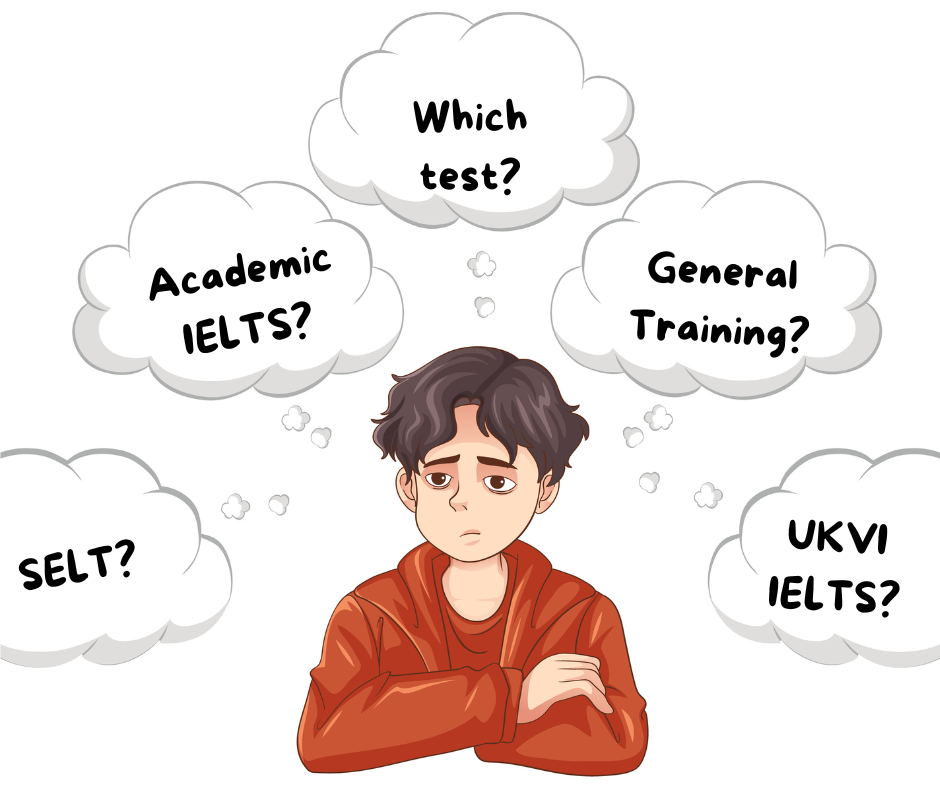Hello, everyone! IELTS Sensei here, ready to drop another wisdom bomb on you today. This time, we’re diving into a topic that can significantly boost your English reading skills and, simultaneously, improve your IELTS Reading Score – developing habits to enhance your reading.
Whether you’re a beginner or simply looking to refine your skills, these habits will help you become a more confident and proficient reader. As a result, you’ll see a substantial improvement in your IELTS reading score.
The last habit is the most fun, so stick around till the end to be blown away. Ready? Let’s get started!
Habit 1: Read Every Day
The first thing you need to do is develop the habit of reading every single day. Here’s the hard truth: the reason you’re probably not doing well in the IELTS Reading test is that you don’t like reading itself.
How can you then expect to excel in something you absolutely hate?
Honestly, solving Cambridge practice papers isn’t going to ignite your passion for reading. I’ve solved a few of them myself, and they are the most boring things ever. I read them if I ever have trouble sleeping at night.
So, what you need to do is start enjoying reading in English. How can you do that? By not making reading English the primary focus.
Here’s what I mean: ask yourself what you are passionate about. Is it travelling? Cooking? Cricket?
Let’s assume you answered travelling. Go on the internet and google the top 5 countries you can visit on a student-friendly budget. You’ll find hundreds of blogs on the topic. Pick any and start reading. You’ll learn about new places, the cost of accommodations and food, and activities you can do without selling your kidney.
When you read such blogs, your primary focus is learning about new places to explore, not improving your English reading speed. If you do this every day, you’ll develop your reading speed and comprehension skills, which are essential for the IELTS Reading Test.
Here are some types of materials you can read:
- Blogs
- Magazines
- Newspapers
- Fiction books
- Non-fiction books
Benefits of Daily Reading:
- Enhances comprehension skills
- Expands vocabulary
- Increases reading speed
- Improves knowledge in areas of interest
Habit 2: Maintain a Vocabulary Journal

The next habit is maintaining a vocabulary journal. Find a small diary or notepad. Every time you come across a word you don’t know, jot it down in the journal. This could be while reading something on the internet, watching a TV show, or even solving practice papers.
Set aside half an hour every day to find the meanings of the words you’ve written down and memorize them. I suggest you don’t look up meanings while reading or watching something, as it disrupts your flow and can be frustrating. Just note the words down and find the meanings later.
Use an English-to-English dictionary when writing the meanings. If you know the Bangla meaning of a word, you’ll try to translate the sentence into Bangla, a habit you should break. To get better at English, stop translating everything to Bangla (or to your native language). The sooner you do this, the quicker you’ll improve in speaking, writing, and even thinking in English.
Download the Merriam-Webster dictionary on your phone; it works without an internet connection. Plus, it has a speaker icon to listen to the pronunciation of words!
Once you’ve memorised the words, look for opportunities to use them. Imagine situations where you can replace basic words with advanced words you’ve learned. This could be in daily conversation or your next IELTS Writing or Speaking test. Also, review the words in your journal regularly to keep them fresh in your mind.
Tips for Maintaining a Vocabulary Journal:
- Note down unfamiliar words
- Use an English-to-English dictionary
- Regularly review and use new words
- Practice using words in context
Here’s a table to illustrate different ways to learn and use new vocabulary:
| Method | Description | Example Activity |
| Vocabulary Journal | Write down and define new words | Review and use in sentences |
| Flashcards | Create cards with words and definitions | Daily review and self-testing |
| Contextual Learning | Understand words through reading and context | Read books and articles |
| Practical Application | Use new words in writing and conversation | Write essays, have discussions |
Habit 3: Improve Reading Speed

Now that you’ve developed the habit of reading regularly and keeping a vocabulary journal, it’s time to increase your reading speed.
If you know anything about the IELTS Reading Test, you know it’s a race against time. You have to answer 40 questions in 60 minutes, meaning you have around 90 seconds to find each answer.
So, one of your top priorities should be to elevate your reading speed.
How can you do that? There are free speed reading websites available online that can boost your reading speed in a fun way. Just google ‘spreeder free app’ and click on the first link. To get started, paste any long text inside the box and click the ‘Spreed!’ button. The words will appear on your screen one by one. You can adjust the settings to increase or decrease your speed according to your level.
Another fun way to amp up your reading speed is by reading subtitles.
Picture this: you’re watching your favourite show with subtitles on. It’s not just about enjoying the dialogue; it’s a fantastic way to supercharge your reading skills. Reading subtitles trains both your eye movements and brain. You’re not just processing spoken words; you’re also reading the written ones in real time.
This dual engagement will make you a more efficient reader.
Plus, the speed of subtitles demands quick eye movements. The concise format and limited time for each line encourage you to develop more efficient eye movement patterns. It’s like a workout for your eyes, helping you read faster and more effortlessly.
And here’s a cool bonus: as you follow along with the dialogue on-screen, you’re not just decoding words; you’re understanding them in context. This contextual connection is like a secret weapon for comprehension, significantly boosting how quickly you grasp the meaning of words and phrases.
Techniques to Improve Reading Speed:
- Use speed reading tools
- Read subtitles while watching shows
- Practice skimming and scanning
- Time yourself when reading passages
Start Reading
There you have it – three habits to supercharge your English reading skills. Remember, progress takes time, so be patient with yourself.
Remember to practice consistently and hone your skills and strategies. And above all, equip yourself with helpful resources and the right sensei to get at least a score of 6.5 on the IELTS test.


